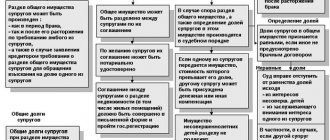Algorithm from a lawyer: what to do if you lose the trial?
There are two parties involved in the process. If one side wins the trial, the other side loses. Both the plaintiff and the defendant can lose. The losing party in court, in addition, is also obliged to compensate his opponent for legal expenses. If you lose in court, what should you do?
Use every opportunity to challenge.
The most important thing in such a situation is not to miss the deadline for appealing judicial decisions and to file a substantiated complaint to a higher court. Be sure to involve a lawyer, since in order to effectively challenge a court decision, you need to know the grounds for overturning judicial acts in each instance, substantive, procedural law and judicial practice. Although, of course, lawyers should be involved even before filing a statement of claim in court or before writing a review if you are the defendant .
Indicate the temporary difficulties due to which you are asking the court for a deferment
To maintain a balance of interests between the creditor and the debtor, the latter, when filing an application to defer the court decision, must convince the judges that the financial difficulties are temporary and that he will find the means to repay the debt.
Arguments for this could include:
- the cafe or restaurant receives the main revenue in the summer-autumn period, and if the court grants a deferment until October - November, the debtor will be able to pay off the debts;
— seasonality will allow convincing the court to extend the execution period until the completion of agricultural work;
- the debtor has a large receivable and he is taking measures to collect it;
— the debtor has entered into a government contract and is waiting for the money to arrive.
Appellate instance
The procedure for appeal in courts of general jurisdiction and in arbitration courts is very similar.
Decisions that have not entered into legal force are appealed to the appellate court. If the defendant loses in court, then an appeal gives him the opportunity to postpone the entry into force of the judicial act, and therefore the enforcement proceedings.
A complaint in civil proceedings can also be filed within one month from the date of the court decision. If you lose the arbitration court, then the period for appeal is the same.
If you missed the deadline for a good reason, the court may reinstate it at your request. For individuals, the following may be valid reasons: illness, long business trip, failure by the court to explain the appeal procedure. For companies, business trips or illnesses of managers and lawyers will not help restore the deadline, but the court will take your side if, for example, you received a court decision late, and the decision was not published in the arbitration court file.
Filing an appeal
An appeal is filed through the court that made the decision, but in the appeal you must indicate the court to which you are sending it:
- on decisions of magistrates - the district court,
- on the decision of district courts - regional, regional, republican court,
- on decisions of the supreme courts of republics, district and regional courts, adopted in the first instance - to the court of appeal,
- on decisions of arbitration courts - to the arbitration court of appeal.
Do not forget to attach a document confirming payment of the state fee (or a request for its deferment), as well as a receipt for sending a copy of the complaint to the other party.
Let's draw up an appeal
Competently Fast Online ( services can be provided online)
Order a complaint
The Court of Appeal has the right:
- leave the complaint unsatisfied and the decision unchanged,
- change or cancel the decision in whole or in part and adopt a new judicial act or terminate the proceedings or leave the claim without consideration.
But in order for the court to satisfy your complaint, it must have sufficient grounds for this. They are identical for both courts of general jurisdiction and arbitration courts:
- the court did not identify all the necessary circumstances,
- the circumstances on which the decision is based are not proven,
- the court's conclusions do not correspond to the actual circumstances,
- procedural or substantive legal norms have been incorrectly applied.
In order to convince the appellate court that there are grounds for canceling or changing the court decision, it is not necessary to rewrite the statement of claim. It is necessary to analyze the contested judicial act and point out the shortcomings of the court decision, based on the rules of law and judicial practice. To file a complaint, contact an experienced lawyer.
If the court also loses the appeal, then the decision of the appellate court immediately enters into legal force, but there is still the opportunity to file a cassation appeal.
The bailiff writes that the money is running away
As a result, the debtor managed to withdraw all the cash from his accounts, and the bailiff service returned the unexecuted court decision to the citizen, declared the collection case unenforceable, simply closed the proceedings and handed over the folder to the archives.
The Supreme Court sided with the citizen and explained who and how is responsible for the inaction of the bailiffs.
The importance of such an explanation from the most qualified judges in the country is that the situation with debt collection by bailiffs is often very problematic. And everyone who has encountered a penalty understands perfectly well: a victory in court is not yet a victory. Due to the bailiff’s reluctance to fulfill his official duties, a citizen’s win in court may remain on paper. Which, in fact, is what happened in our case. The story began with a citizen bringing a claim to the court against the bailiff service. In court, the plaintiff said that he had a dispute with a plastic window company that did not fulfill its contractual obligations and the client suffered.
The court awarded the victim compensation for windows that were not supplied but paid for. By court decision, the company must return more than a million rubles.
At the time of registration of enforcement proceedings, there was enough money in the window company’s account to more than pay off the debt. Plus, the businessmen also had other expensive property. But due to the fact that the bailiff was executing, or rather pretending that he was slowly executing the court decision to collect the debt, the money and property of the businessmen disappeared. The bailiff returned the unfulfilled proceedings to the citizen who won the trial, and wrote off the case itself to the archives due to the fact that the debtor did not have the funds.
It was then that the person who had already suffered twice - from businessmen and from the bailiff service - went to court with a claim against the service. But he was unlucky. The district and city courts unanimously rejected his claim. The persistent plaintiff then asked the Supreme Court to review the denials. The bailiff service, having learned about this, also appealed to the Supreme Court with a request to leave the decisions of the local courts that refused the person unchanged.
The judicial panel for civil cases requested the case, studied it and stated that the citizen was rightly indignant, and the decisions of his colleagues were illegal.
According to the law, the main task of the bailiff is the correct and timely execution of the court decision
This is what the materials of the case, which the Supreme Court studied, showed. The court decision that the company owes the citizen a million rubles was made and entered into legal force back in 2015. From the case materials it is clear that in August 2015 the bailiff wrote a decree by which he introduced a “ban on registration actions in relation to cars registered with the defendant” and lists five cars, three of which are expensive foreign cars. The bailiff's order was dated November 2015 to collect a million rubles from the company's bank account, which contained money that fully covered the debt. And then there was silence, which lasted for two years.
In May 2021, the decision of the district court came into force, declaring “unlawful the inaction of the bailiff, ... expressed in the long-term non-execution of the court’s decision on collection.” In December 2021, the bailiff service wrote a decree that the enforcement proceedings were completed, and the writ of execution was returned to the victim. This resolution states that “the debtor does not have any property that can be seized, and all measures taken to find his property were unsuccessful.” That’s when the person, outraged by the inaction of the performers, went to court with a claim against the bailiff service. But the district court refused the citizen, writing in the decision that, in its opinion, “there is no cause-and-effect relationship between the defendant’s inaction and the losses claimed by the citizen for compensation.” The appeal agreed with this refusal. But the Supreme Court of the Russian Federation is not. Here are the Supreme Court's arguments.
The main law when considering this case is the Law “On Enforcement Proceedings”. Article 36 of this law states that “the requirements contained in the executive document must be fulfilled by the bailiff within 2 months from the date of initiation of enforcement proceedings.” Article 119 of the same Law “On Enforcement Proceedings” states that “interested persons have the right to file a claim in court for compensation for losses caused to them as a result of enforcement actions.” The same is said in the law on bailiffs.
The Supreme Court also recalled its plenum (No. 50 of November 17, 2015), which discussed enforcement proceedings. If during the enforcement proceedings the bailiff did not take the necessary actions to take away funds or property from the debtor that later disappeared, then the plaintiff cannot be required to prove that his debtor does not have property that can be recovered. At the same time, the absence of “real performance in itself is not a basis for imposing on the state the obligation to compensate the amount not received from the debtor.
The fact is that the responsibility of the state in the execution of judicial acts issued against private individuals is limited to the organization of forced execution of these acts and does not imply a mandatory positive result if it is “conditioned by objective circumstances depending on the debtor.”
In our case, the basis of the claim was not the fact of non-fulfillment of the court decision, but non-fulfillment due to the inaction of the bailiff. The bailiff issued the orders on time, but no evidence was presented to the court that the bailiff sent them to the bank. The defendant did not explain why the bailiff did not act. There is no answer in the case to the question of why, if the debtor has a fleet of vehicles, the court decision was not implemented. The whole dispute will be reviewed again.
Cassation (cassation instance)
In both civil and arbitration proceedings, there is a so-called “continuous” cassation, in which the court accepts for consideration all received cassation complaints if they meet the mandatory requirements.
An appeal to the cassation office is only possible if an appeal has been filed.
Filing a cassation appeal
In civil proceedings, the period for filing a cassation appeal is three months from the date of entry into force of the judicial act, in arbitration proceedings - two months.
Complaints are also filed through the court of first instance. Don’t forget to attach documents confirming payment of the state fee and sending a copy to the other party.
If you are the defendant, send along with the complaint a petition to suspend the execution of the court decision.
In civil proceedings, complaints are filed with the cassation court of general jurisdiction, and in arbitration proceedings - with the arbitration court of the relevant district.
Let's draw up an appeal
Competently Fast Online ( services can be provided online)
Order a complaint
Based on the results of consideration of the complaint, the cassation court may:
- leave the judicial acts unchanged and the complaint unsatisfied,
- cancel or amend a judicial act and adopt a new one, or send the case for a new trial,
- cancel the judicial act and terminate the case or leave the claim without consideration,
- uphold one of the court decisions.
Grounds for canceling a judicial act: discrepancy between the court's conclusions and the evidence and factual circumstances of the case, as well as incorrect application of substantive or procedural legal norms.
In order for a cassation court to cancel a judicial act that has entered into force, there must be compelling reasons, and the violations committed by the courts must be significant. Drawing up cassation appeals requires highly qualified and experienced lawyers.
What to do if you lose in cassation court? In both civil and arbitration proceedings there is also a second cassation.
What reasons does the court recognize as valid?
You can get a deferment or installment plan if the debtor has a large amount of debt and his work was suspended due to the pandemic.
This Determination was made by the Arbitration Court of the Republic of Khakassia (dated April 24, 2020 in case A74-11163/17). The applicant was given an installment plan for one and a half years to pay taxes in the amount of 20 million rubles.
Courts also recognize the following as valid reasons:
— the presence of other enforcement proceedings, which does not allow immediately collecting the debt under all writs of execution;
— a one-time collection of debt may cause bankruptcy of the debtor.
In each specific situation, the courts examine them individually; installment execution of the court is not always provided. A lawyer will help you justify your request for a deferment and gather the necessary evidence.
How to write a petition yourself? Read our article!
Second cassation and supervision
If the cassation upheld what you consider to be an illegal judicial act, you have the opportunity to appeal to the appropriate panel of the Supreme Court (civil or economic disputes).
The cassation appeal does not automatically go to the board for consideration, but goes through a selection stage. First, it is considered by a single judge of the Supreme Court and decides whether to transfer the complaint or refuse it.
In civil proceedings, you can send a complaint directly to the Supreme Court no later than three months from the date of the ruling by the cassation court of general jurisdiction, in arbitration - within two months from the date of the ruling by the district arbitration court. If the deadline is missed, then immediately ask the court to reinstate it.
Order a cassation appeal to the Supreme Court
Competently Fast Online ( services can be provided online)
Order a complaint
You can complain to the chairman of the Supreme Court or his deputy about both the refusal to restore the deadline and the refusal to transfer the complaint to the board for consideration, but if he refuses, then his decision will be final for you, since you can apply for supervision only after the decision of the judicial board of the Supreme Court decisions on the merits.
A small number of all incoming complaints are transferred to the board, so writing such a complaint requires highly qualified lawyers, since it is necessary to first convince the judge of the Supreme Court to transfer it to the board, and then convince the board to cancel judicial acts.
The powers of the judicial panel are the same as those of the cassation courts, but only significant violations of the norms of substantive and procedural law are grounds for canceling rulings and decisions.

If you lose the Supreme Court - supervisory appeal
If you lose in cassation to the Supreme Court, you still have the opportunity to file a supervisory appeal.
As for the supervisory authority, a very small number of cases end up there. A supervisory complaint is also first considered by a judge of the Supreme Court alone; he transfers it to the supervisory authority or refuses to transfer it. The supervisory authority is the Presidium of the Supreme Court.
A supervisory appeal can be sent no later than three months from the date of the decision by the Supreme Court panel on the merits. The term can also be restored by the court at your request, and the refusal to restore the term or transfer the case to the Presidium of the Supreme Court can be appealed against the Chairman of the Supreme Court or his deputies.
By way of supervision, judicial acts can be canceled only if the rights and freedoms provided for by the Constitution or international law, public interests or the uniformity of judicial practice are violated.
At the request of interested persons or on the proposal of the Prosecutor General, the chairman of the Supreme Court or his deputies may submit a case to the presidium for review no later than six months from the date of adoption of the last judicial act if they consider that the fundamental principles of substantive or procedural law have been violated.
Order a supervisory complaint
Competently Fast Online ( services can be provided online) Order a complaint
Legal costs for appeal
According to the general rule, which is the same in both civil and arbitration proceedings, legal costs are recovered from the losing party in favor of the winning party, in proportion to the claims satisfied. If you lose your case in court, be prepared to prove that your opponent’s expenses were unreasonable and unreasonable.
Such expenses include: payment for representative services, state duty, cost of postal services, travel and accommodation, examination, services of specialists and translators.







